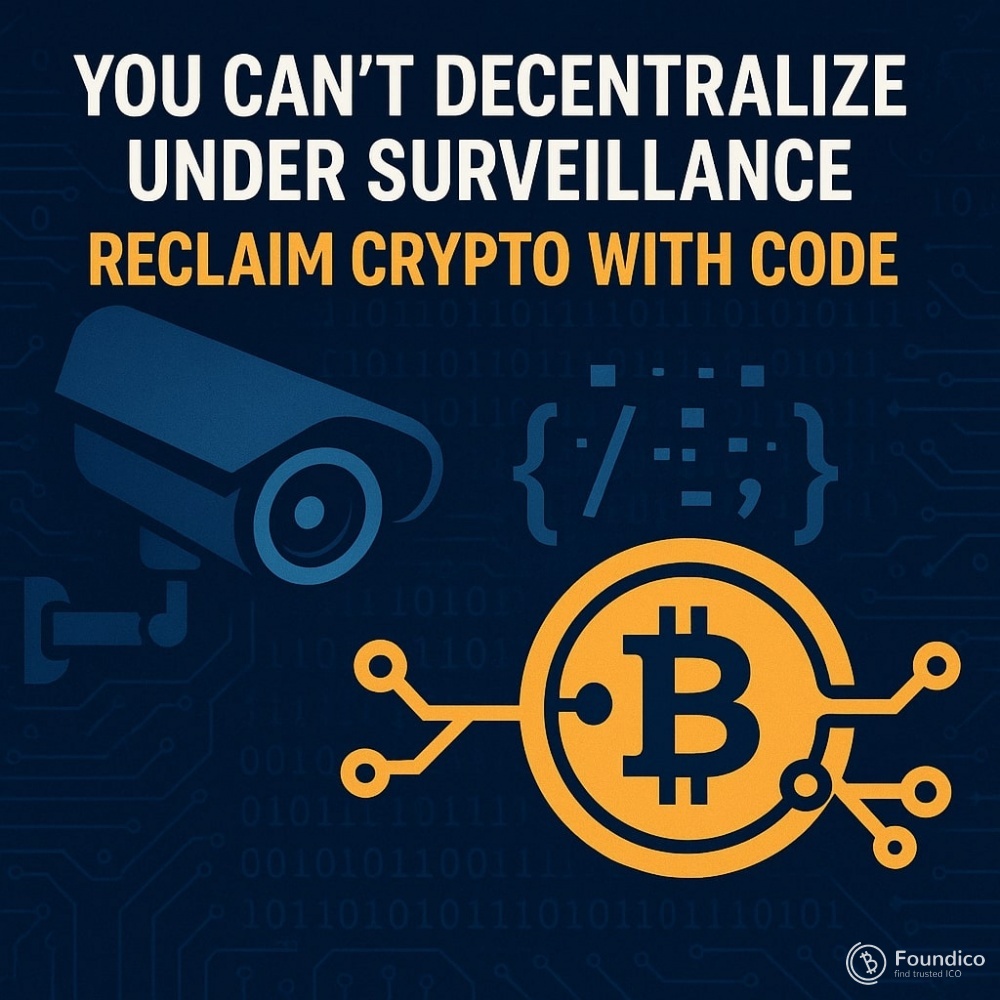You Can’t Decentralize Under Surveillance: Reclaim Crypto with Code

By Dr. Pooyan Ghamari, Swiss Economist and Visionary
The promise of cryptocurrency was never merely about profit or speculation. At its core, it was a movement—an idea of sovereignty, self-determination, and a rejection of centralized systems of control. Yet in today’s digital landscape, we are confronted with a paradox: how can decentralization thrive in an environment dominated by constant surveillance?
Surveillance as the New Centralization
The modern financial system thrives on oversight, data collection, and gatekeeping. Governments and institutions justify surveillance in the name of security, compliance, or public interest. But the result is predictable: the erosion of individual privacy, the stifling of innovation, and the creation of systems that resemble digital panopticons.
When blockchain is monitored, wallets are flagged, and exchanges are forced into hyper-regulation, we must ask ourselves: are we truly free to transact, or have we simply digitized the same centralized controls of the past?
The Code Is the Last Refuge
In a world where policy bends toward monitoring every interaction, the only true safeguard is code. Open-source, peer-reviewed, and incorruptible code that prioritizes anonymity, permissionlessness, and censorship resistance.
Crypto was born as a rebellion against opaque, centralized structures. Its DNA lies in math and cryptography—not in politics or bureaucracy. To preserve this essence, we must return to building and supporting technologies that cannot be co-opted by surveillance states or financial oligopolies.
Reclaiming Decentralization
The path forward requires courage and clarity of purpose:
-
Privacy-first protocols: Without privacy, decentralization collapses into an illusion.
-
Community-driven development: Real power lies not with corporations or regulators but with distributed contributors who build tools for everyone.
-
Education and awareness: The average user must understand that decentralization isn’t a convenience—it’s protection against systemic vulnerability.
-
Resilience over compliance: Innovation should focus on strengthening peer-to-peer systems, not bending to the will of oversight mechanisms.
A Vision for the Future
Decentralization cannot coexist with absolute surveillance. Either individuals reclaim their digital sovereignty through code, or they submit to systems that reduce autonomy to a façade. The choice before us is not technical—it is moral and civilizational.
True crypto adoption is not about speculation or institutional approval. It is about creating a parallel economy where freedom is encoded, privacy is non-negotiable, and no authority can dictate participation.
As history shows, every era of liberation begins with those willing to resist control. In our time, resistance means writing, deploying, and using code that makes decentralization real—not rhetorical.
Only then can we reclaim crypto, not as a product, but as a principle.
